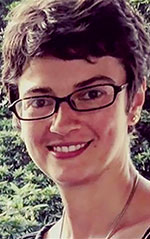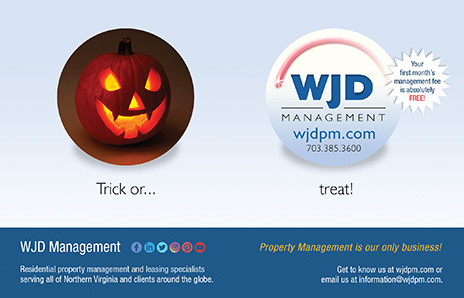Go Ahead, Ask About My Accent
Speaking Out
BY NIKOLINA KULIDZAN
Speaking Out is the Journal’s opinion forum, a place for lively discussion of issues affecting the U.S. Foreign Service and American diplomacy. The views expressed are those of the author; their publication here does not imply endorsement by the American Foreign Service Association. Responses are welcome; send them to journal@afsa.org.
I all but skipped down the uneven Alexandria sidewalks. I had recently returned from an overseas assignment and was still cherishing every moment back in the neighborhood. I was almost to my car when my eyes locked on a bundle of silvery-brown fur. The tiny pup’s eyes were mere slits, but his paws were comically large.
Without even glancing at the humans at the other end of the leash, I reached down to pet the pup. “What’s he, like, eight weeks?” I asked.
At one point, it occurred to me that I should have sought permission, and I apologized to the humans. They were gracious and waved off the apology.
With two dogs under age 2 at home, both adopted at our last post, I was a recently minted dog person. I gave the new puppy parents some unsolicited advice, wished them good luck, and headed for my car.
And that’s when it came. The question.
“Where are you from?”
For 25 years, I had been answering that question patiently and politely, pushing aside the discomfort it caused me and the knowledge that more often than not, the inquiry would be either a conversational dead-end or an opening for the inquirer to share their opinions on my place of origin.
But that day, I smiled and said: “I’m from here.”
Stumped but only briefly, the young woman rushed to clarify: “Oh, I thought I heard an accent.”
“There are people with accents here, too,” I said, still wearing a smile, hoping that would lessen the sting.
In the car, I recounted the event to my ever-supportive husband. He thought I had been uncharitable, and he phrased it less charitably than that. A friend we met for dinner agreed. And after some reflection, so did I, because as a matter of personal policy and in response to the social issues of our day, I believe we should be asking more questions, not fewer.
We should be starting conversations, not shutting them down. Making attempts to understand people who look, sound, behave, and think differently, not ignoring, shutting out, or shying away from them.
Even so, I felt entitled to my curt, smart-alecky response. I was being neighborly, only to get reminded I’m an outsider. I was born in a country that no longer exists, and by the age of 18, I had experienced war, refugee life, and immigration. For me, answering this seemingly innocuous question is a topic more suitable for the therapist’s couch or a hefty memoir than a breezy sidewalk exchange. But my identity struggles aside, the question is problematic because it implies that I and the rest of my fellow accented Americans don’t belong.
And that’s hard to hear for those of us who have worked so darn hard to earn our place in this country—we’ve paid exorbitant international tuitions and worked backbreaking or soul-sucking jobs to get a green card. We have fought in wars or worked around the clock to evacuate American citizens from the epicenter of a pandemic, left our families and customs behind.
And yes, we have adopted puppies and allowed them to sleep in our beds, confirming our families’ long-held suspicion that becoming an American involved losing your mind. We have done all this, and, in return, all we want is to be recognized as Americans.
That day, on the Old Town sidewalk, I didn’t want to be an object lesson. I just wanted to be a neighbor.
That moment aside, I don’t want to shut down conversations. I don’t want to stymie the opportunity for myself or others to inform, educate, or connect. But I also don’t want to feel like a foreigner every time I open my mouth.
So, as someone who has been answering questions about my accent for many years and discussed the issue at length with accented friends, but also as someone who feels a burning urge to inquire about the accents of others (whether to test my accent-placing prowess or learn more about the person), I have a few words of advice when it comes to engaging folks with accents.
• Earn the right to ask the question by first building trust and a sense of commonality. Don’t make this the first question you ask. Learn something about the individual before pointing to what makes them different. “Do you have a dog?” would have made a great first question for the accented stranger who just spent five minutes swooning over your pooch.
• Have ideas for where to take the conversation after you get your answer. Have something better than “Oh, cool” to respond with. Or at least commit to checking your map app as soon as the person is out of sight. But don’t use this as a chance to show off your vast knowledge of geopolitics or ethnic stereotypes. Don’t tell a person with a French accent that you ate a baguette once, an Australian that you envy their beach life, or a Serb American that her people started World War I.
• Find a way to ask the question without alienating the person. Instead of asking, “Where are you from?”—or, heaven forbid, “Where are you really from?”—consider saying: “Where is your accent from?” or “Where are you from originally?” That way you open a conversation while allowing for the possibility that the accented stranger is no less American than you.
• Be extra cautious in the professional setting. As U.S. diplomats, your accented colleagues represent the United States, and our credibility depends on being as American as anyone else. Help us by recognizing that our accent is just one of our many traits.
Asking personal questions is always risky. Some people might find it rude or intrusive. Others might think it a show of ignorance. And some are simply tired of answering the same question for the billionth time and might lash out the way I did.
I’d argue, however, that the risk is worth taking because the alternative is so dismal—that we remain confined to our comfort zones, fearful and suspicious of our differences, isolated in our unperturbed and misunderstood individuality.
So, go ahead, ask me about my accent and my heritage. But when you do, do it with a genuine desire to connect. You are asking a lot of me. Be willing to bring something of yourself to the conversation. If you do, I’ll meet you there, in what could be either a minefield or a magic carpet of connecting with someone different than ourselves.
When sharing or linking to FSJ articles online, which we welcome and encourage, please be sure to cite the magazine (The Foreign Service Journal) and the month and year of publication. Please check the permissions page for further details.
Read More...
- “A Glass Half-Full” by David T, Jones, The Foreign Service Journal, March 2015
- “A Kiss Deferred by War” By Nikolina Kulidzan, The New York Times, July 2015
- “Rooting Out Microaggressions” by Charles Morrill, The Foreign Service Journal, July/August 2021



